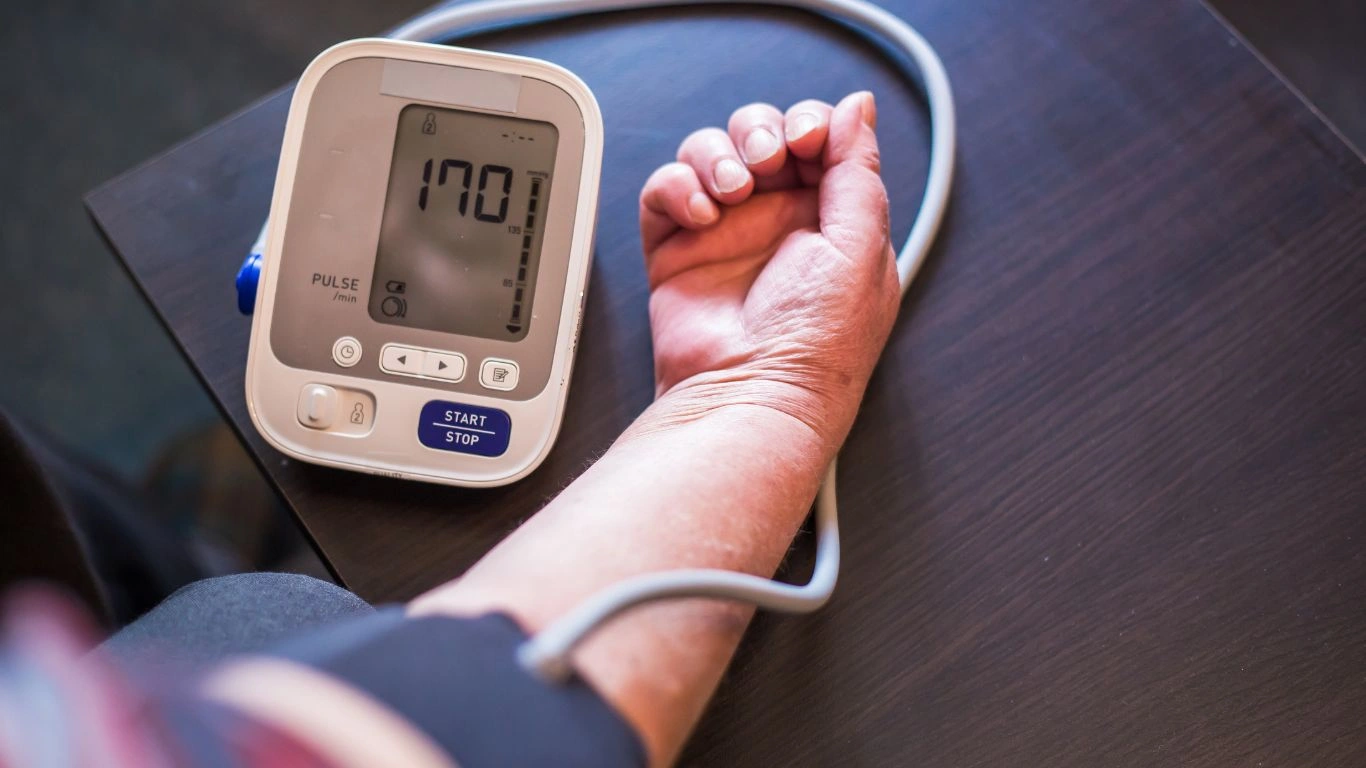Discover the Best Breakfast to Reduce BP and Boost Heart Health
When patients ask me about the best breakfast to reduce BP, I can’t help but smile—it’s one of my favorite conversations in clinic. As an Internal Medicine physician specializing in hypertension management, I’ve seen firsthand how a few smart choices in the morning can ripple through the rest of the day, not just for blood pressure, but energy, mood, and even weight. So let’s chat about what’s actually going on with your breakfast plate, and how it might be helping—or quietly hurting—your blood pressure goals.
Why Breakfast Matters for Blood Pressure
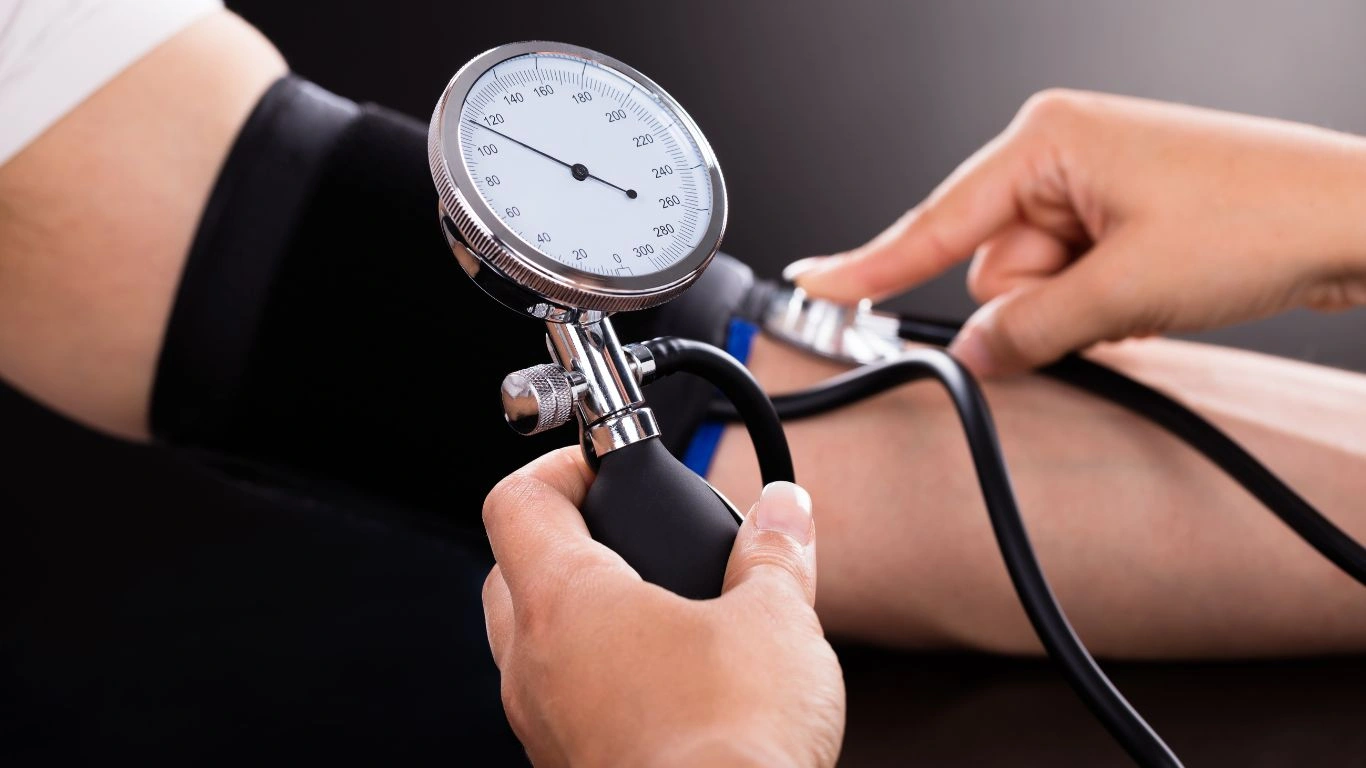
Here’s the deal: your morning meal sets the tone for your cardiovascular system. Skipping breakfast, for example, can actually increase stress hormones like cortisol, which raises BP. On the flip side, eating the right combination of foods can help dilate your blood vessels, lower inflammation, and stabilize your sugar levels—which are all huge when you’re trying to keep hypertension in check.
And no, I’m not talking about downing a sugar-filled granola bar and calling it good. I mean real, whole-food fuel that your arteries will thank you for.
The Science Behind Morning Meals and BP
There’s solid evidence behind this. Several studies have shown that a balanced, nutrient-dense breakfast can lead to lower systolic and diastolic pressures throughout the day. Think fiber, potassium, magnesium, and antioxidants—all nutrients that support vascular health. I always tell my patients: if you’re going to make just one change this month, start with breakfast. It’s low effort, high reward.
What Makes the Best Breakfast to Reduce BP?

Okay, let’s break it down. The best breakfast to reduce BP isn’t some mystery superfood or a fancy supplement. It’s a combination of key nutrients that support heart health, in delicious and realistic forms. Here’s what I encourage my own patients (and yes, myself) to prioritize:
1. High-Fiber Whole Grains
- Oats (especially steel-cut or rolled)
- Quinoa or buckwheat if you’re going gluten-free
- Whole grain toast (sprouted grains are a plus)
These foods are packed with soluble fiber, which helps lower LDL cholesterol and stabilizes blood pressure. Plus, they keep you full, which helps prevent unhealthy snacking later in the day.
2. Potassium-Rich Fruits
- Bananas (easy and portable)
- Berries (blueberries and strawberries are anti-inflammatory powerhouses)
- Kiwi and oranges (excellent for blood vessel flexibility)
Potassium is like a natural counterweight to sodium, helping your kidneys flush out excess salt. The more you get from whole foods, the better your BP response.
3. Healthy Fats
- Avocados (they’re not just for toast!)
- Nuts and seeds like chia, flax, or walnuts
- Olive oil drizzle on eggs or toast
These fats support vascular elasticity and lower inflammation. I often recommend a tablespoon of ground flax in oatmeal—it’s subtle but mighty.
4. Lean Protein
- Eggs (one of my go-tos—protein, B vitamins, and satisfying)
- Greek yogurt or plain skyr (watch for added sugars)
- Tofu scramble for a plant-based option
Getting some protein early helps balance your glucose curve, which keeps your blood pressure steadier throughout the day. Plus, it gives your brain a boost—who doesn’t need that in the morning?
Simple Breakfast Combinations That Work
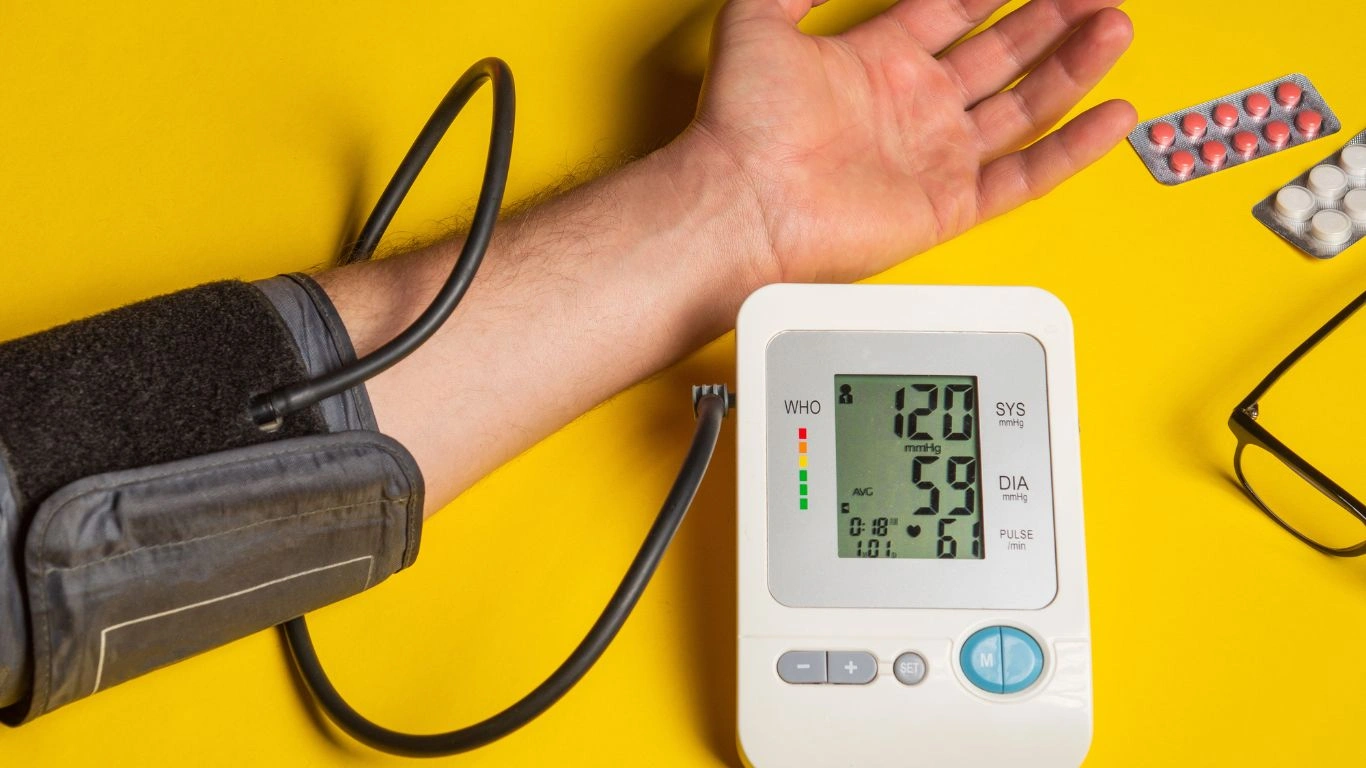
Now, let’s talk real-life. Mornings are hectic—I get it. Between clinic notes and coffee (yes, I drink coffee—it’s fine in moderation!), I don’t have time to prep elaborate meals. But I do have a few quick combos that I rotate. These are patient-approved and physician-tested:
- Oats + banana + chia seeds + cinnamon: Add some walnuts and boom—fiber, potassium, and omega-3s all in one bowl.
- Whole grain toast + avocado + egg: Add a sprinkle of everything bagel seasoning and some cherry tomatoes.
- Greek yogurt + berries + ground flax: Optional honey drizzle, if your BP’s well-managed and your sweet tooth insists.
- Tofu scramble + sautéed spinach + whole grain wrap: Plant-based and protein-packed.
And remember—consistency beats perfection. If you’re hitting 3-4 of these nutrient targets most days, you’re doing your arteries a big favor. We’ll dive into a few blood pressure “breakfast busters” to avoid next (spoiler: it involves boxed cereals and hidden sodium), so stay with me.
Breakfast Busters: What to Avoid If You’re Serious About BP
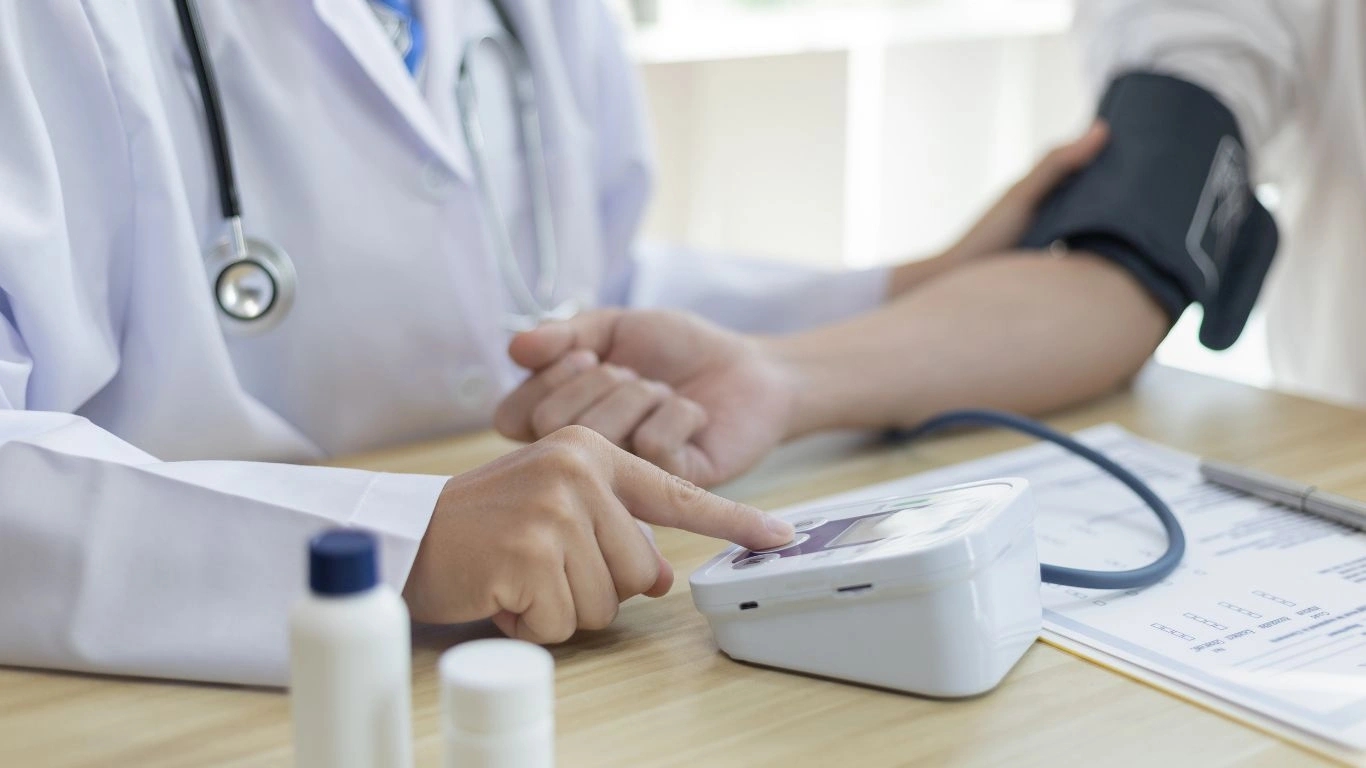
Alright, now that we’ve covered what to eat, let’s chat about what to skip—or at least seriously rethink. I’ve seen it time and time again: a patient swears they’re eating “healthy,” but their BP just won’t budge. And when we unpack their morning habits? Bam—turns out that ‘healthy’ cereal or breakfast bar is loaded with sodium, sugar, and zero fiber.
1. Packaged Cereals
This one’s a sneaky culprit. Even the ones with “heart healthy” labels can be ultra-processed and packed with sodium or added sugars. If the ingredient list reads like a science experiment or starts with sugar, toss it.
2. Breakfast Meats
Bacon, sausage, ham—they’re classics, but they’re not doing your arteries any favors. These processed meats are high in sodium and saturated fats, both of which can spike your blood pressure and increase long-term cardiovascular risk. And let’s not even talk about nitrates.
3. Flavored Yogurts and Smoothies
Don’t get me wrong—I love a good yogurt bowl or smoothie, but those pre-packaged options are often more dessert than breakfast. Some small tubs of flavored yogurt pack over 20g of sugar. If you’re going this route, opt for plain Greek yogurt and sweeten it naturally with fruit or a drizzle of honey (and only if your BP is well-controlled).
4. Fancy Coffee Drinks
As much as I love a strong cup of black coffee, those frothy lattes or blended drinks from the drive-thru can derail your goals fast. Added syrups, whipped cream, and full-fat milk or creamers can sneak in 300+ calories and tons of sugar before you even eat a bite of food.
Rethinking Your Routine: Making Small Tweaks That Stick

One thing I’ve learned in medicine—and in life—is that sweeping diet overhauls rarely last. The trick is to make micro-adjustments that become habits. You don’t need a total kitchen remodel or a personal chef. A few simple swaps can really move the needle (literally and figuratively) on your BP numbers.
Swap This → For That
- Sugary cereal → Steel-cut oats with berries and flaxseed
- Flavored yogurt → Plain Greek yogurt with chopped banana
- White toast → Sprouted grain or rye toast with avocado
- Bacon → Scrambled tofu or sautéed mushrooms
- Fancy latte → Black coffee with a splash of oat milk
One of my patients, a truck driver in his early 50s, used to start every day with a sausage biscuit, energy drink, and gas station muffin. We started small—he swapped his biscuit for a boiled egg and whole grain toast, added a banana, and started brewing his own coffee in the cab. Three months later? His systolic BP dropped by 18 points, and he felt way more energized. No meds changed. Just breakfast.
The Power of Meal Prep (Even for Breakfast)
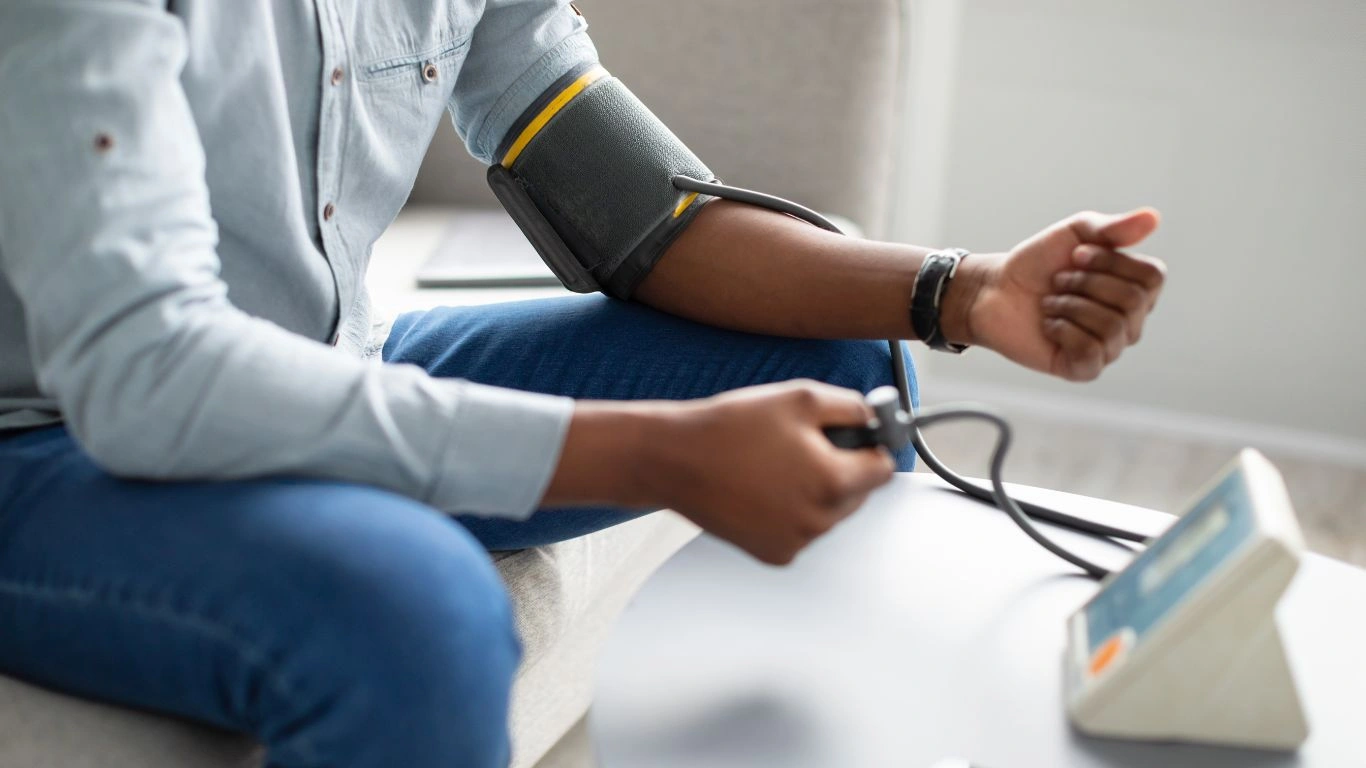
Here’s something I swear by—meal prepping breakfast on Sundays. If you’ve got 30 minutes, you can make your mornings practically stress-proof. I’ve done this for years, especially during residency when time was scarce and vending machines were tempting.
Easy Prep Ideas for a BP-Friendly Week
- Overnight oats: Mason jars with oats, almond milk, chia, and fruit. Just grab and go.
- Egg muffins: Whisk eggs with spinach, tomatoes, and a pinch of feta. Bake in a muffin tin and store in the fridge.
- Chia pudding: Mix chia seeds with coconut milk and let it sit overnight. Top with kiwi or orange slices for that potassium punch.
- DIY trail mix: Unsalted almonds, sunflower seeds, pumpkin seeds, and dried unsweetened cranberries—great with plain yogurt or as a snack.
If you have blood pressure concerns, mornings are too important to leave to chance. You don’t have to be perfect—just be consistent enough to see the trend head in the right direction. I tell my patients all the time: when you start your day with intention, your heart notices.
Coming up, we’ll look at how hydration and certain herbs and spices can level up your breakfast game even more—because food isn’t just fuel, it’s medicine. And as someone who spends her days helping people outsmart hypertension, I can tell you this: your fork is more powerful than your prescription pad in more ways than you think.
Hydration and Herbs: The Unsung Heroes of a Blood Pressure-Friendly Breakfast
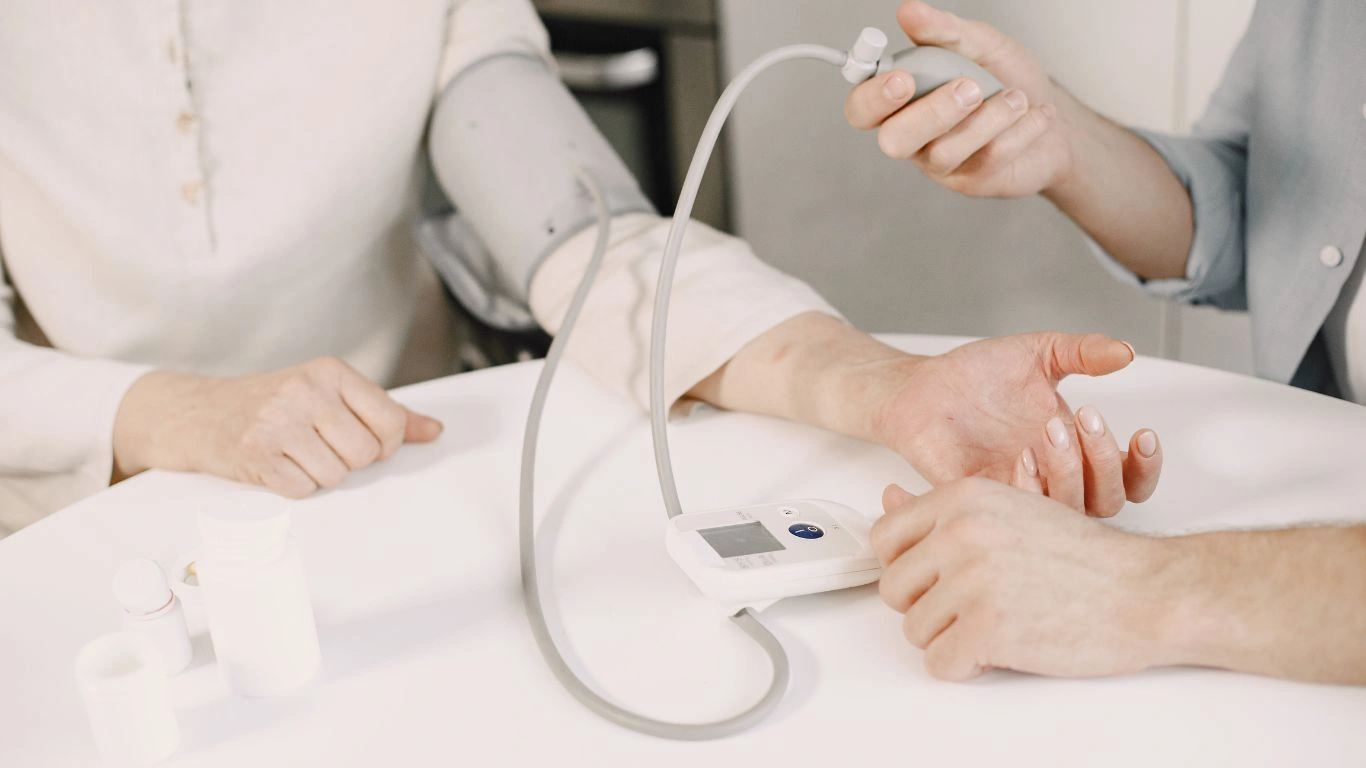
By the time I’m wrapping up a busy morning in clinic, one of the most common questions I get is: “Doc, what about coffee and water? And do any herbs actually help with blood pressure?” I’m glad you asked—because these often overlooked parts of your breakfast routine can really make a difference.
Hydration: More Than Just Water
Starting your day well-hydrated is key. Water helps maintain blood volume and supports kidney function, which in turn regulates sodium balance—crucial for blood pressure control. I recommend my patients aim for at least one glass of water first thing in the morning before their coffee or tea.
Coffee itself is a bit tricky—it’s not a villain for most people in moderation, but excessive caffeine can temporarily spike blood pressure. If you’re sensitive or already hypertensive, I suggest limiting to one or two cups per day and avoiding those sugary or creamy extras we talked about earlier.
Herbs and Spices That Can Support Healthy BP
Nature has plenty of tools we can use to give our cardiovascular system a little boost. Over the years, I’ve seen benefits when patients incorporate certain herbs and spices into their breakfasts, either sprinkled on or brewed in tea. Here are a few favorites:
- Cinnamon: This sweet spice helps improve insulin sensitivity and may reduce systolic BP slightly. I like to sprinkle it on oatmeal or yogurt—it adds flavor without any added sugar.
- Turmeric: Known for its anti-inflammatory properties, turmeric can support overall vascular health. Try adding a pinch to scrambled eggs or smoothies. Just don’t forget a dash of black pepper to improve absorption.
- Garlic: While not your classic breakfast ingredient, a little fresh garlic or garlic powder added to savory dishes can help relax blood vessels.
- Ginger: A soothing addition to tea, ginger has vasodilatory effects that can help improve circulation.
When I suggest these to patients, I always remind them that herbs are complements—not substitutes—for lifestyle changes and prescribed medications. But incorporating them into your meals is an easy, tasty way to support your heart health.
Mindful Eating and Breakfast Timing: Why It Matters

Another piece of the puzzle I often discuss during appointments is how and when you eat your breakfast. Beyond what’s on your plate, the way you approach your morning meal can impact your blood pressure.
Mindful Eating: Slow Down and Tune In
Eating quickly or while distracted can lead to overeating and blood sugar spikes, which are no friends to your BP. I encourage patients to sit down, chew slowly, and savor each bite. This simple practice helps improve digestion and signals your brain when you’re full, preventing those post-breakfast energy crashes or cravings.
Timing Matters: Don’t Skip, But Don’t Rush
Ideally, try to eat breakfast within an hour or two of waking up. Skipping breakfast or delaying too long can trigger your body’s stress response, releasing hormones like cortisol and adrenaline that raise blood pressure. A well-timed breakfast helps stabilize your hormones and energy, setting you up for a steady day.
That said, if you’re not hungry right away, it’s okay to start small—a handful of nuts or a piece of fruit—and then eat a more substantial meal a bit later. The key is consistency and quality.
Putting It All Together: Your Personalized BP-Friendly Breakfast Plan
After decades of treating hypertension and coaching patients, I can confidently say there’s no one-size-fits-all breakfast. But armed with these principles, you can craft meals that nourish your heart and fit your lifestyle:
- Choose whole, minimally processed foods.
- Prioritize potassium, fiber, lean protein, and healthy fats.
- Limit sodium and added sugars.
- Stay hydrated with water and moderate coffee intake.
- Use herbs and spices to boost flavor and health benefits.
- Practice mindful eating and respect your body’s hunger cues.
Implementing even a few of these tips can lead to meaningful improvements in blood pressure control and overall wellness. From my experience, patients who focus on breakfast see benefits beyond numbers—they report more energy, better mood, and fewer mid-morning crashes.
If you’re curious to dive deeper or need personalized advice, don’t hesitate to reach out to a healthcare professional or registered dietitian. Managing blood pressure is a marathon, not a sprint, and your breakfast is a powerful first step.
References
- American Heart Association
- National Heart, Lung, and Blood Institute
- Centers for Disease Control and Prevention
Disclaimer
This article is for informational purposes only and does not replace professional medical advice, diagnosis, or treatment. Always consult your healthcare provider before making any changes to your diet or lifestyle, especially if you have hypertension or other health conditions.

Dr. Gwenna Aazee is a board-certified Internal Medicine Physician with a special focus on hypertension management, chronic disease prevention, and patient education. With years of experience in both clinical practice and medical writing, she’s passionate about turning evidence-based medicine into accessible, actionable advice. Through her work at Healthusias.com, Dr. Aazee empowers readers to take charge of their health with confidence and clarity. Off the clock, she enjoys deep dives into nutrition research, long walks with her rescue pup, and simplifying medical jargon one article at a time.

